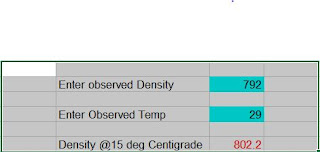Aviation Turbine Fuel and British Airways Flight 38 Accident - Part 1
Aviation Turbine Fuel and British Airways Flight 38 Accident - Part 1
British Airways Flight 38 (call sign Speedbird 38) is a scheduled flight operated by British Airways from Beijing, China to London, United Kingdom. On January 17, 2008, at 12:42 London time, the Boeing 777 used for the flight, having completed the 8,100-kilometre trip, crashed just short of the runway at its destination. There were no casualties but from the 152 people on board, 47 people sustained injuries, one of them serious. This aircraft was the first Boeing 777-200ER to be written off in the model's history.
Ice
crystals in the aviation fuel were blamed as the cause of the
accident, clogging the fuel-oil heat
exchanger (FOHE) of each engine.
This restricted fuel flow to the engines when thrust was demanded during the
final approach to Heathrow. Boeing identified the problem as specific to
the Rolls-Royce engine fuel-oil heat exchangers, and Rolls-Royce subsequently developed a
modification to its FOHE; the European Aviation Safety Agency
(EASA) mandated that all affected aircraft were to be fitted
with the modification before 1 January 2011.
The new series of blog is for understanding
Aviation turbine fuel role in modern civil flights specially behaviour of water
in fuel and mitigating its adverse effects during flight including at high
altitude.
A beautiful short video of the BA-38 accident
Keep looking for next parts for understanding water and Aviation turbine Fuel relationship during flight.
- Wikipedia https://en.wikipedia.org/wiki/British_Airways_Flight_38
- Youtube https://www.youtube.com/watch?v=Ls2exYefvsg
British Airways flight BA 38 accident and Aircraft Jet A-1 fuel System - part 5
British Airways flight BA 38 accident and Jet A-1 fuel temperature - part 4
British Airways flight BA 038 fuel temperatureaspects - part 3
British Airways flight BA 38 accident and Jet A-1 fuel temperature - part 4
British Airways flight BA 038 fuel temperatureaspects - part 3

Comments